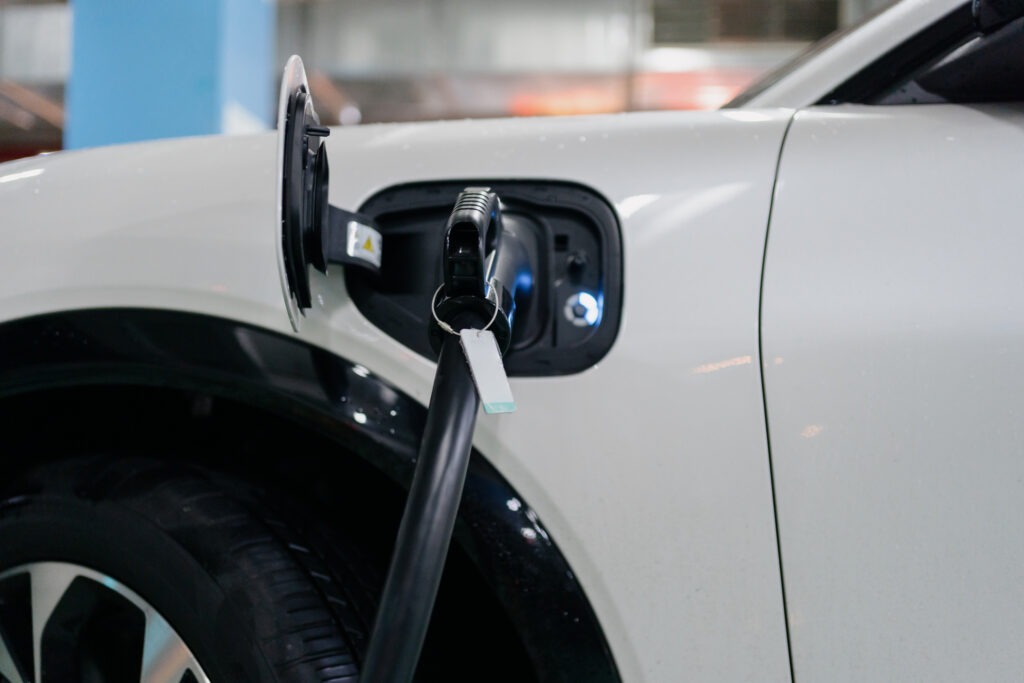BYD stays at top of Chinese EV market while Aito and Wuling enjoy success
18 April 2024

At first glance, China’s electric vehicles (EV) market slowed in February, but a closer look reveals a more positive performance. José Pontes, data director at EV Volumes, considers the trends with Autovista24 editor Tom Geggus.
At 440,000 units, EV registrations in China were down by 9% during February. Deliveries were impacted by the Chinese New Year festivities, which occurred in the second month of 2024, whereas last year saw celebrations take place in January. Yet, with fewer working days in the month compared with February 2023 the single-digit drop could be considered a success.
There were mixed fortunes for the two powertrains that make up the EV market. While battery-electric vehicle (BEV) deliveries were down 22%, plug-in hybrid (PHEV) registrations increased 22%. This is an impressive result for the powertrain, which is experiencing a resurgence in the Chinese market.
In terms of share, EVs claimed 33% of the total new-car market, which saw 1.33 million new vehicles registered in total. BEVs alone accounted for 22% of deliveries. In the year to date, the EV share also reached 33%, with 22% coming from BEVs alone.
BYD Qin Plus takes first
The overall Chinese market, including internal-combustion engine (ICE) cars, was led by four EVs in February. At the top of the table was the BYD Qin Plus with 27,851 registrations.
The sedan was the first model BYD dropped the list price on, to help it compete with ICE-powered cars. With prices now starting at ¥80,000 (€10,400), the model can be expected to enjoy sales acceleration.
The Tesla Model Y recorded 22,537 registrations, putting it in second place in February. The US crossover seems to have found its cruising speed in China, with between 25,000 and 30,000 units registered a month.
Taking third with 22,079 units, the BYD Song conceded the lead to the Qin Plus. The model’s future performance will depend on its competition, particularly from its BYD siblings. While the Song L is currently the only internal challenger, the Sea Lion and Denza N7 look set to cannibalise sales soon.
Instant market success
The Aito M7 came fourth with 21,083 registrations in the month. An instant success for the brand, the SUV has revolutionised the full-size category as a major market disruptor. This indicates that the carmaker is more than capable of replicating the success of Li Auto.
The BYD Seagull finished February in fifth position in the best-selling EVs table, posting 14,403 deliveries. With some production now being diverted to export markets, domestic demand for the model has steadied. However, the Seagull can be expected to keep appearing in China’s top 10.
Following its introduction to new regions like Latin America and Asia Pacific, Europe is expecting to see the small EV in the second half of 2024. However, the region is unlikely to see prices as low as those in China. With factors including tariffs and VAT, prices could start at roughly €18,000, which would still be far lower than many other competitors.
The Wuling trio
Wuling managed to place three models in the top twenty EVs in February. Its Mini EV came sixth (12,649 units), the Bingo reached 10th (8,087 units) and the Starlight finished in 17th (5,647 units). The SAIC–GM brand range is starting to look complete. A compact best-seller would perhaps enhance the set.
The BYD Destroyer 05, a sportier sibling of the Qin Plus, also had a great month in February. It recorded 6,953 registrations, putting it in 12th. This was just behind the Tesla Model 3 in 11th with 7,604 units.
The surprise of the month was the Chery Fengyun A8 PHEV, finishing in 14th. The sedan now looks set to compete against the BYD Qin family. With a total of 6,126 deliveries in only its second month in the market, it is off to a good start.
With similar sizes and battery specifications, but a larger starting price, it will be interesting to see how the new Chery model performs.
Just ahead was the Li Auto L9, reaching 13th with 6,336 registrations. Its competition, the Aito M9, recorded 5,251 deliveries in February. It sat outside just the top 20 in only its third month on the market.
BYD Song sees success in market
Between January and February, the BYD Song was well ahead of its competition. With 74,298 deliveries, the model has seen a strong start to 2024.
The BYD Qin Plus pushed its way up to second with 57,095 deliveries. Meanwhile, the Aito M7 dropped to fourth having registered 51,080 units. The Wuling Mini EV climbed to sixth (28,169 units), while the Li Auto L7 took ninth (21,802 units).
In the second half of the table, the Tesla Model 3 jumped three positions to 12th. Meanwhile, Li Auto’s flagship L9 model made it up to 17th.
In the second half of the table, the Tesla Model 3 jumped three positions to 12th, narrowly edging out the BYD Han in 13th by 355 units. Meanwhile, the Li Auto L9 made it up to 17th, only 102 deliveries ahead of the GAC Aion S in 18th.
Wuling tackles Tesla
Looking at the brand chart, there were some major movements, but not at the top of the table. With a 28.3% market share, down from 28.5% in January, BYD remained comfortably in the lead.
Below, both Tesla and Wuling tied for second, with each brand recording a 6.2% market share. Meanwhile, Geely suffered from a slow month in February, as it dropped from second place to fifth (5.2% share). Its best-seller in the month was the Panda Mini in 20th.
Aito (5.3% share) had a good month, jumping to fourth and pushing Li Auto (4.6% share) out of the top five. If the brand can replicate the M7’s success with the new M9, then second place could be a possibility in the coming months.
With brands gathered under parent companies, BYD maintained its sizeable lead. Its 29.2% market share put it far ahead of second-place Geely–Volvo (9.3% share). The Chinese-Swede marque is coming under pressure from SAIC in third, which claimed 8.9% of the market thanks to the momentum of its Wuling brand.
Changan dropped to fourth with a 6.6% share. The OEM was unable to place any model in the February top 20. Tesla (6.2% share) finished fifth. While the US carmaker expects to stay in the top five for the rest of the year, market dynamics and its lack of fresh models may make this difficult.



